
Irvin McDowell was an American army officer. He is best known for his defeat in the First Battle of Bull Run, the first large-scale battle of the American Civil War. In 1862, he was given command of the I Corps of the Army of the Potomac. He fought unsuccessfully against Thomas "Stonewall" Jackson's troops during the Valley Campaign of 1862 and was blamed for contributing to the defeat of United States troops at the Second Battle of Bull Run in August.
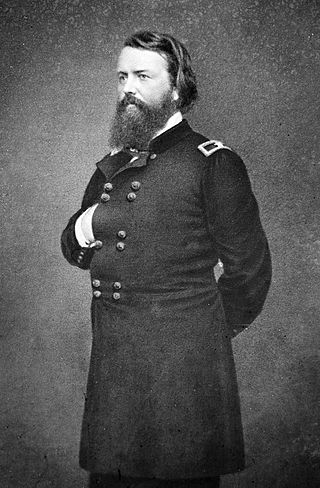
John Pope was a career United States Army officer and Union general in the American Civil War. He had a brief stint in the Western Theater, but he is best known for his defeat at the Second Battle of Bull Run in the East.

Fitz John Porter was a career United States Army officer and a Union general during the American Civil War. He is most known for his performance at the Second Battle of Bull Run and his subsequent court martial.
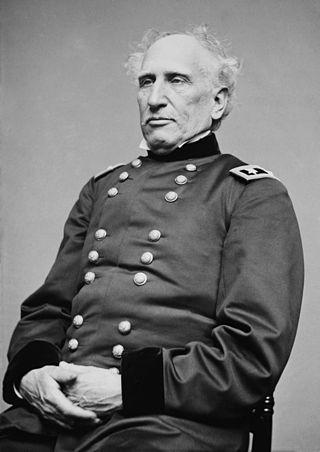
Silas Casey was a career United States Army officer who rose to the rank of major general during the American Civil War.
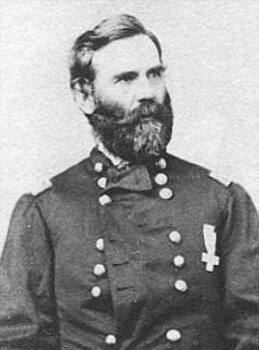
George Washington Getty was a career military officer in the United States Army, most noted for his role as a division commander in the Army of the Potomac during the final full year of the American Civil War.

Samuel Davis Sturgis was a senior officer of the United States Army. A veteran of the Mexican War, Civil War, and Indian Wars, he attained the rank of brevet major general.

Samuel Peter Heintzelman was a United States Army general. He served in the Seminole War, the Mexican–American War, the Yuma War and the Cortina Troubles. During the American Civil War he was a prominent figure in the early months of the war rising to the command of a corps.

Innis Newton Palmer was a career officer in the United States Army, serving in the Mexican–American War, the Civil War, and on the Western frontier.

John Irvin Gregg was a career U.S. Army officer. He fought in the Mexican–American War and during the American Civil War as a colonel and near the end of the war as a brevet general in the Union army. In 1866, he was nominated and confirmed as a brevet major general of volunteers and a brevet brigadier general in the Regular Army, both to rank from March 13, 1865.
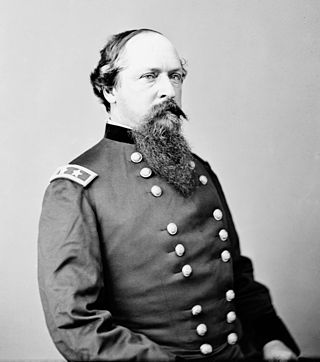
James Brewerton Ricketts was a career officer in the United States Army, serving as a Union Army general during the Civil War.

Charles Bradley Stoughton was an officer and regimental commander in the Union Army during the American Civil War.

Marsena Rudolph Patrick was a college president and an officer in the United States Army, serving as a general in the Union volunteer forces during the American Civil War. He was the provost marshal for the Army of the Potomac in many of its campaigns.

John Porter Hatch was a career American soldier who served as general in the Union Army during the American Civil War. He received a Medal of Honor for gallantry in action at the September 1862 Battle of South Mountain during the Maryland Campaign.

Thomas Gamble Pitcher was an American army officer who served as the Superintendent of the United States Military Academy from 1866 until 1870.
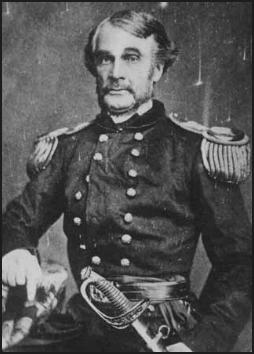
Edmund Brooke Alexander was an officer in the United States Army in the Mexican-American War through the American Civil War who rose to the rank of brevet Brigadier General in 1865.
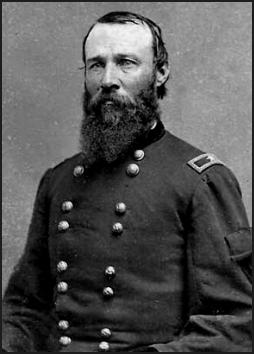
Washington Lafayette Elliott was a brigadier general in the Union Army during the American Civil War. He led a division of IV Corps at the Battle of Nashville in 1864. In 1866, he was awarded the honorary grade of brevet major general, U.S. Army.

Thomas Jefferson McKean was an American engineer, soldier, politician, and farmer. A West Point graduate, he fought in the United States Army during the Seminole Wars, in the Mexican–American War, and he served as a general in the Union Army during the American Civil War.

Samuel Henry Starr was a career United States Army officer, regimental commander and prisoner of war. A collection of his letters provide a rare view of military life, the War with Mexico, Indian conflicts, the Civil War, his fall from grace, recovery and post Civil War service. Despite his rough demeanor he was a religious man and reflective of the times he served.
James Vote (Voty) Bomford was a soldier in the United States military and a Union officer in the Civil War, and retired with the rank of Brigadier General. He graduated from Norwich University in 1828 and from West Point in 1832, and was a colonel in the 8th United States Infantry. Bomford was twice wounded in action at Perryville and served in the Mexican–American War. His father was George Bomford, an inventor and military officer in the United States Army, who invented the Columbiad cannon. His son, also named George, was expelled but allowed to retire following his involvement in the Eggnog Riot at West Point. George did enter the military and retired as a captain.
Joseph Nelson Garland Whistler was a career United States Army officer. He served in the Mexican–American War and received a brevet appointment for distinguished service in the Battle of Contreras and the Battle of Churubusco. At the beginning of the American Civil War, Whistler was among the U.S. Regular Army officers taken prisoner by Confederates in Texas in April 1861 and paroled but was not exchanged until August 15, 1862. In 1863, he became colonel of the 2nd New York Heavy Artillery Regiment. He received a promotion and four brevet appointments in the regular army for his service during the Overland Campaign, specifically the Battle of North Anna, and the Siege of Petersburg, specifically the Second Battle of Petersburg. He was nominated on January 13, 1866 and confirmed on March 12, 1866 for appointment to the grade of brevet brigadier general of volunteers, to rank from March 13, 1866. He retired in on October 19, 1886 as colonel of the 15th U.S. Infantry Regiment.

















